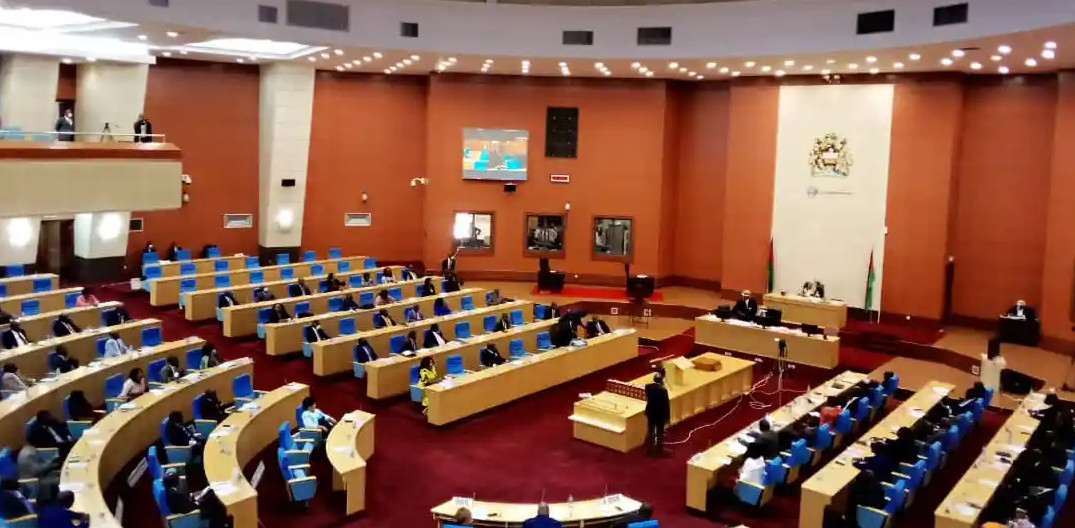Brief on the new PPP law passed by parliament on 5th April 2022

1. INTRODUCTION
The Public-Private Partnership Act (Cap. 46:07) (PPP Act), now repealed, was enacted in 2011.
The Commission has been responsible for implementing the law for the past ten years. Over the years, the Commission experienced some challenges which necessitated review of the PPP Act. The overall objective of the review was to promote expedited and efficient implementation of PPP arrangements.
The Bill was enacted into law by Parliament on the 5th April 2022.
2. OVERVIEW OF THE CHALLENGES FACED BEFORE THE REVIEW AND SOLUTIONS INTROUDUCED IN THE NEW LAW
(a) Financial Sustainability for the Commission
The new law has introduced provisions that will make implementation of PPP arrangements financially self- sustainable. The law has established a PPP Financing Fund and a levy to be paid by private investors after being offered the opportunity to implement a PPP project.
(b) Approval Processes for PPP Arrangements
There was no systematic approval process for PPP arrangements. Ministries, Departments and Agencies, of Government (MDAs) used to come up with proposed PPP arrangements on ad hoc basis whenever it was expedient for them to do so. The process did not involve the Ministry responsible for public sector investment planning. Further, the ad-hoc approach used to delay approval processes for PPP projects and affected implementation time-frames for PPP arrangements.
The new law therefore has introduced a process that is systematic and expedited, and that must always involve the Ministry responsible for planning. With this law, MDAs will be submitting proposed PPP projects to the Ministry responsible for planning annually for assessment and inclusion in the Public Sector Investment Program (PSIP) and thereafter PPP projects will be put in a PPP compendium after approval of the PSIP by cabinet.
The Commission will then be called upon to initiate implementation of the Projects, which process shall include detailed feasibility study to determine affordability, value for money, bankability, environmental viability
and other issues.
(c) Unsolicited Bids
The repealed Act required that all unsolicited bids should be referred to the Commission and in turn, the Commission was supposed to consult the appropriate MDA for preliminary assessment. Thereafter, the MDA was required to seek the approval of Cabinet to conduct a feasibility study and then open up bidding to the public. This procedure had two main challenges. The first challenge was that use of normal procurement processes for unsolicited bids did not recognize the interested investor already on the ground. The second challenge was that there was no provision for rewarding the originator of the bid in case the originator is not successful after the competitive bidding.
These challenges frustrated private investors who conceptualized the project and was a disincentive to private sector innovation. The new law therefore has introduced a new process for unsolicited bids that is expedited and that incentivizes the private sector to come up with solutions to challenges affecting the public sector service delivery, without necessarily waiting for Government solicitation. The new procedure does not ignore the process of conducting feasibility studies for unsolicited bids neither does it ignore the competitive procurement process.
The new law has only introduced the concept of swiss challenge to expedite procurement after all approval process are obtained. Ultimately Government will still conduct assessments to determine if the bid is affordable, necessary for government and if it will achieve value money and value for people.
A Swiss challenge is a form of public procurement which requires a public authority which received the unsolicited bid to publish the bid and invite third parties to match or better it.
In our proposed law, the Commission is obligated to publish and invite interested investors to match or better the unsolicited bid. Where competing bids are received, the Commission shall proceed to evaluate the bids including the unsolicited bid.
The new law has also introduced provisions of compensating the unsolicited bidder where the unsolicited bidder is not successful in the swiss challenge, by the successful party.
(d) Government’s Participation in Special Purpose Vehicles
PPP projects are usually implemented through a special purpose vehicle (SPV), which is a single purpose company incorporated specifically for purposes of implementing the PPP project. The repealed Act required Government to be a shareholder in every such SPV. This requirement rendered supervision of PPP contracts difficult in some cases due to conflict of interest between the Government and the private party. Further, some investors considered it an investment risk to have Government a shareholder in their private company.
In some cases, Government did not even have financial capacity to inject the required equity capital. The rationale behind this requirement was the need for Government to monitor operations of the private Investor. However, such monitoring can be done through requirements stipulated in the attendant PPP contract. The new law therefore has stipulated that Government shareholding should not be mandatory, but optional and a negotiation matter, depending on the nature of the proposed PPP project.
(e) Direct Negotiation
The new law has introduced the concept of direct negotiation. The law makes provision for PPP projects to be implemented through direct negotiation, where doing so is necessary and is in the public interest. The law has therefore proposed project scenarios that can necessitate use of this process to ensure that decisions to invoke this process are legally controlled and not based on subjective discretion. The concept can only be invoked where the MDA convinces the Commission that the project involves matters of intellectual property, is of national security, if there is need for continuity with a project to avoid service disruption, in cases of regional projects, where a request for EoI was floated but no response was received.
The onus being on the MDA to prove these cases. The decision will always be made by the Commission if satisfied that the project meets the criteria stipulated in the law. The law has provided another layer of confirmation. Once approved by the Commission, the Minister of Finance must confirm the approval before commencement of the direct negotiation. This confirmation of the Minister is aimed at inculcating safeguards before the procedure is commenced. It must be emphasized that the decision will be made by the Commission, not a Minister, upon being satisfied with the request by the relevant MDA.
(f) Responsibility of MDA on monitoring of PPP Projects
The new law has introduced detailed provisions obligating MDAs to monitor implementation of PPPs with the assistance of the Commission. This was seen necessary as it was discovered that MDAs were not taking active role in monitoring and supervising performance of a private party in a PPP contract
(g) Power to Delegate Conduct of Feasibility Study to a private Entity
The law has also introduced provisions allowing the Commission to request private parties interested in the project to conduct feasibility study on behalf of the MDA if technical complexity of the project so demands. Where a feasibility study is conducted by a private party on behalf of Government, the law stipulates that the feasibility report must be reviewed, confirmed and adopted by Government.
(h) Minimum Contract Requirement
The law has also come up with minimum fundamental issues that must be included in a PPP contract for guidance. This is to make sure that at a minimum, PPP contracts do make provision for those fundamental provisions, while recognizing contractual freedom.
3. IMPACT OF THE NEW LAW
It is expected that the new law will have the following impact –
(a) improved implementation of PPP arrangements that is systematic and expedited;
(b) improved service delivery to the public by leveraging on private sector financial capacity and operational efficiency;
(c) a financially independent PPP Commission; and
(d) efficient supervision of PPP contracts and enhanced investor confidence;
4 NEXT STEPS
The Commission will soon commence development of regulations to support implementation of some principles of the law. For example, detailed regulations for unsolicited bids and direct negotiations, will have to be developed to ensure that the processes are fully in line with acceptable procurement tenets.



.jpg)